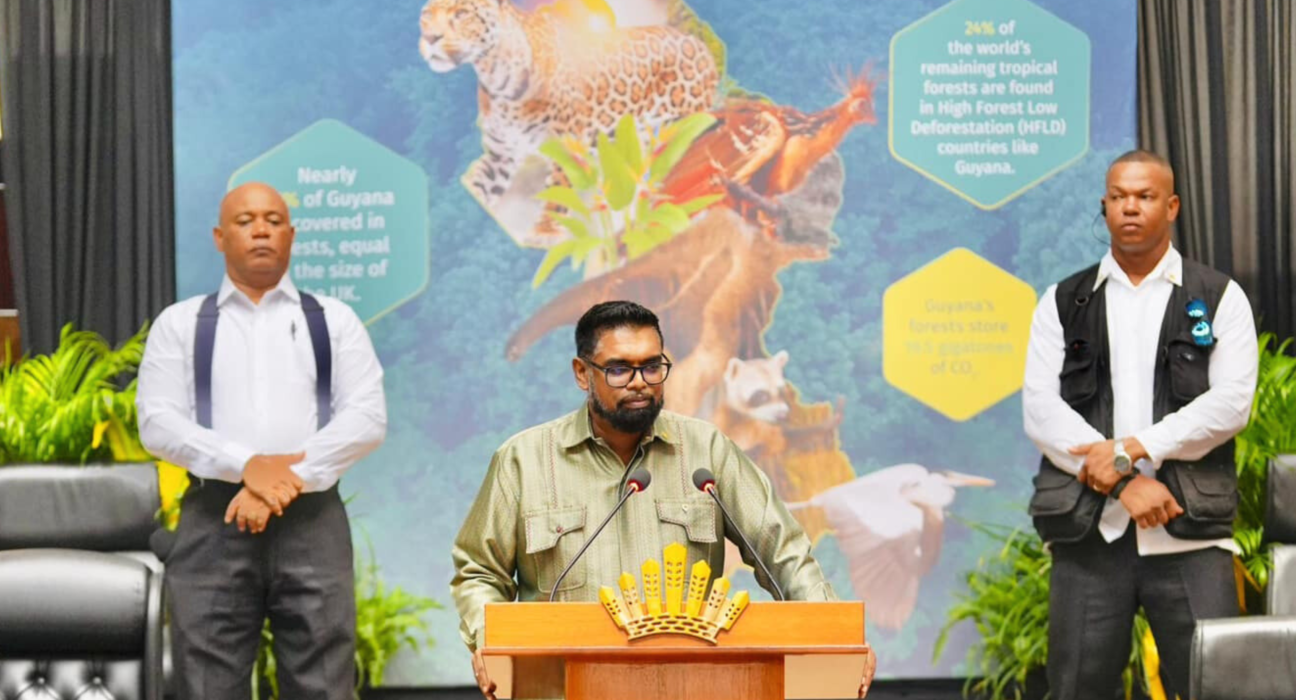By Josiah Williams
President Dr. Irfaan Ali has underscored the pivotal contributions of developing nations in the global effort to combat climate change.
Speaking at the launch of a high-level discussion on the Low Carbon Development Strategy (LCDS) and its global model for forest financing, President Ali highlighted the significant impact these countries are making with innovative climate solutions.
The President emphasized that while large nations are often the focus of climate discussions, smaller and developing countries are also making remarkable strides.
He cited Costa Rica’s advancements in conservation and renewable energy, as well as Rwanda’s leadership in forest restoration, as examples of effective climate leadership irrespective of a country’s size.
In his address, President Ali also urged a closer examination of which countries are genuinely advancing climate action versus those merely advocating for it.
He pointed out that developing countries are at the forefront of investing in clean energy and setting ambitious climate targets.
The President called for greater global efforts to implement carbon pricing and eliminate fossil fuel subsidies, particularly from wealthier nations.
He also advocated for substantial investments in clean and renewable energy to drive progress in reducing global carbon emissions.
Guyana’s Low Carbon Development Strategy was highlighted as an effective model for global climate action, combining sustainable economic development with environmental preservation.
The strategy aims to ensure that economic growth is achieved while maintaining and protecting the country’s forest resources.
The discussion on the LCDS and its global model for forest financing marks a significant step in advancing global climate initiatives and reinforcing the role of developing countries in the fight against climate change.

